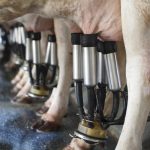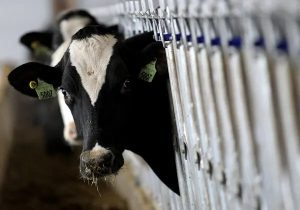
In a 5-4 ruling, the court concluded that the exemption is preempted by the state constitution, which grants workers in dangerous industries a fundamental right to health and safety protections, including overtime. While this ruling was narrowly construed to dairy industry workers, the same reasoning could easily extend to additional agricultural farmworkers.
In Martinez-Cuevas v. DeRuyter Brothers Dairy, dairy workers for DeRuyter Brothers Dairy filed a class action lawsuit claiming that DeRuyter failed to pay them minimum wage, did not provide the required rest and meal breaks, failed to compensate pre- and post-shift duties, and failed to pay overtime. The parties settled, resolving all but the overtime pay claims.
Plaintiffs alleged that the class members generally worked over 40 hours per week without receiving overtime pay and labored in dangerous conditions. In addition, the workers argued that the agricultural exemption to the overtime requirement violates article I, section 12 of the Washington State Constitution, because it grants a privilege or immunity to the agricultural industry under a law implicating a fundamental right of state citizenship – the right of all workers in dangerous industries to receive workplace health and safety protections.
The court agreed that the exemption violates article I, section 12 and implicates a fundamental right to the health and safety protections in the Minimum Wage Act, a law necessary to safeguard the general welfare of Washington citizens. Reasoning that article II, section 35 of the state constitution expressly protects workers from dangerous conditions, the court noted that the legislature must enact statutory protections for such dangerous work, and the legislature met this duty by passing the Minimum Wage Act.
Defendants argued that the seasonal nature of farming justified the agricultural exemption from the Minimum Wage Act. The Court distinguished other types of farm seasonal farm working for piece-rate workers. Compare, Lopez Demetrio v. Sakuma Bros. Farms, 183 Wn.2d 649, 653, 355 P.3d 258 (2015) (describing seasonal workers harvesting berry crops each year). For dairy employees, the Court pointed to the year-round nature and hazards of dairy work – exposure to diseases from animals, physical strain, dangerous chemicals – and concluded that the legislature had no reasonable basis for excluding agricultural workers from the Minimum Wage Act protections.
This ruling will mean increased labor costs for dairy employers. Because dairy is a commodity product, Washington agricultural producers cannot simply pass higher costs on to their customers or consumers. Further, this case opens the door to challenge to other exemptions if the nature of the work could be hazardous.























